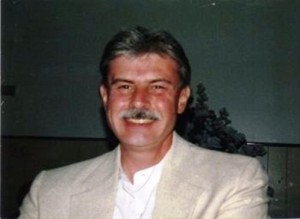By now, eight years later, the details and debate over his sister’s situation – her diagnosis, her prognosis, her wishes, her autopsy – are no longer that important to Bobby Schindler.
For him, one thought dominates. Terri Schiavo deserved to live.
Schindler now heads a growing foundation to help others in similar situations. Every year since her death, they’ve held a “Terri’s Day” of remembrance.
This year, the Terri Schiavo Life & Hope Network has moved from Florida to the Philadelphia area, where both the Schindler and Schiavo families are from, and the event has grown.
At 5 p.m. Friday, Archbishop Charles J. Chaput will celebrate a Mass dedicated to Terri Schiavo at the Cathedral Basilica of SS. Peter and Paul. Sarah Palin will speak afterward at a fund-raising dinner at the Philadelphia Marriott Downtown. A ticket is $150, and 350 have been sold; $25,000 gets you a visit with Palin, but no takers so far, Schindler said.
 Terri Schiavo died March 31, 2005, after 15 years in what doctors termed a persistent vegetative state. Her case was marked by an excruciating public family battle that traversed the courts, prompted an unprecedented session of Congress, drew the attention of the Vatican, and inspired countless Americans to complete “living wills” spelling out what care they did – or did not – want in the event of severe injury or illness.
Terri Schiavo died March 31, 2005, after 15 years in what doctors termed a persistent vegetative state. Her case was marked by an excruciating public family battle that traversed the courts, prompted an unprecedented session of Congress, drew the attention of the Vatican, and inspired countless Americans to complete “living wills” spelling out what care they did – or did not – want in the event of severe injury or illness.
Her husband, Michael, said she would not have wanted to live this way. Her parents and siblings said she would have chosen life, no matter what.
It is a decision that daily is facing many families, although rarely in such a public arena. Mostly, it’s in a hospital conference room with a box of tissues on the table.
Schindler, 48, a former math and science teacher in Florida, thinks many patients are being warehoused. Last year, the foundation established a Center for Disability in the Public Square – a data-gathering and information-sharing network. In his office, he has a sketch of a rehab facility he would like the foundation to build, although he concedes it is likely a long way off.
The foundation, begun in 2000, has seen its revenue grow steadily, from less than $20,000 in 2005 to nearly $700,000 in 2011.
That year, contributions were bolstered by a $100,000 prize from the Gerard Health Foundation, a pro-life philanthropy in Natick, Mass., that praised the Schiavo network for helping 1,000 families, and giving them “safe haven amidst the pressure of the so-called ‘right to die’ movement.”
One of them is Sara Harvey, of Horseheads, N.Y., just north of the Pennsylvania line. She has been battling officials over her husband, Gary, who has been in a persistent vegetative state for nearly seven years, after falling down steps and suffering a traumatic brain injury.
A judge had named the county Gary Harvey’s guardian in 2007, and in 2009, officials planned to remove his feeding tube. Sara Harvey contacted Schindler, who has petitioned the court to name him a legal guardian.
No decision has been made, but Sara Harvey credits Schindler with saving her husband’s life so far. “Bobby’s like an angel over my husband.”
Full Article and Source:
Terri Schiavo’s Brother Working to Help Others









